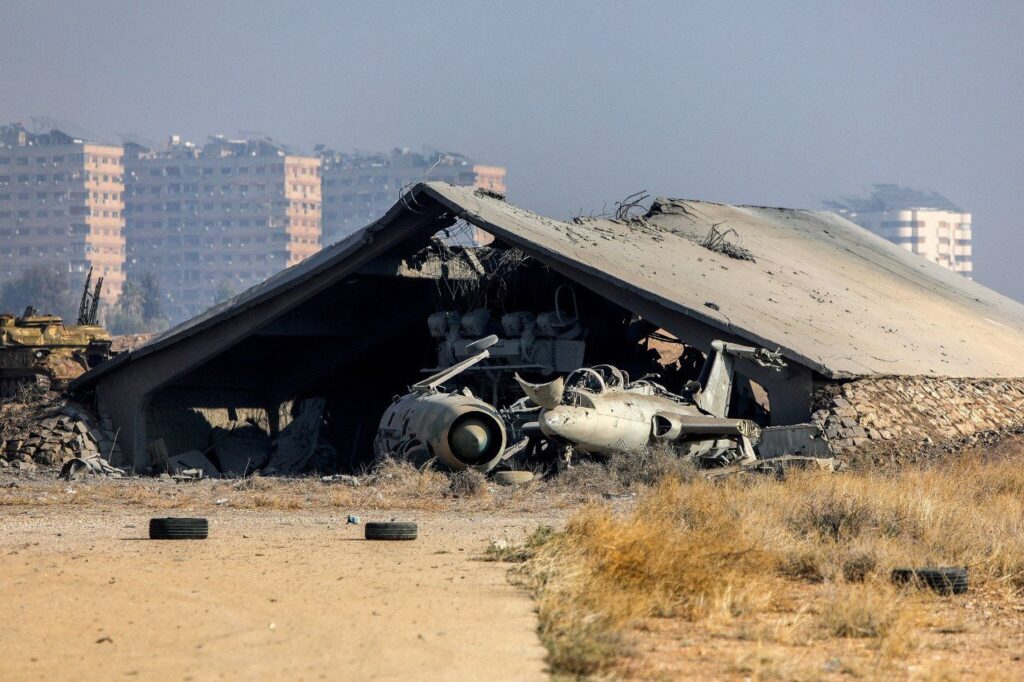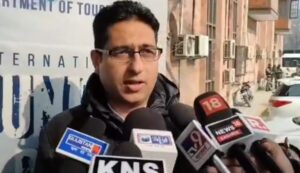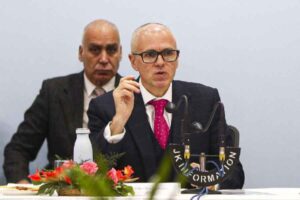Deafening silence over scorched-earth strategy

Syrian rebels, supporters remain tight-lipped about Israel’s incessant attacks
Since the Hayat Tahrir al-Sham (HTS) and other rebel groups took control of Damascus at the weekend and toppled president Bashar Assad, Israel has intensified attacks against Syria.
But Israel is not targeting the rebels and their positions. The regime stands accused of supporting the HTS which launched an offensive in Aleppo late last month and conquered key Syrian cities and towns within days.
On Tuesday, Israel continued to carry out airstrikes in Syria, pounding an air defense site and damaged Syrian naval ships as well as military warehouses near the port city of Latakia.
Israeli warplanes also hit military bases and research centers in and around the capital, Damascus.
A war monitor says Israel has carried out more than 300 strikes across Syria since Assad’s fall.
The Syrian Observatory for Human Rights added that Israel has “destroyed the most important military sites in Syria, including Syrian airports and their warehouses, aircraft squadrons, radars, military signal stations, and many weapons and ammunition depots in various locations in most Syrian governorates”.

Syrian sources say Israeli troops have reached up to 25km from Damascus.
The Israeli army has also taken advantage of Assad’s downfall and penetrated Syrian territory beyond the buffer zone with the occupied Golan Heights. It has seized land in Syria in violation of a 50-year-old agreement that ended the 1967 war.
Israeli forces have occupied strategic areas in Quneitra governorate in the southern areas of the country. They have taken control of strategic Mount Hermon while Syrian sources say the regime’s army has reached up to 25km from Damascus.
Israel has called its military presence in Syria temporary with the aim of ensuring that the regions adjacent to the occupied Golan Heights are not exposed to any potential security threats.
Israel says its actions are aimed at preventing weapons falling “into the hands of extremists”.
For now, it is as clear as day that Israel is seeking to destroy Syria’s defense capabilities and expand its presence in the Golan Heights and perhaps beyond for good.

The assassination of a Syrian chemist suggests that Israel may be orchestrating a campaign to eliminate numerous scientists within the nation.
Nonetheless, Israel’s latest aggression against Syria encompass objectives that go beyond these aims.
According to Syrian media, one of the country’s scientists has been assassinated in his home in Damascus.
The murder of Dr. Hamdi Ismail Nada, who was a chemist in the field of medicine, has shocked the academic and scientific community in Syria.
Reports suggest that Nada’s killing, who contributed greatly to the development of chemical research, could mark the “beginning of a phase of chaos and assassinations by international intelligence organizations” in Syria. They say the Israeli and US spy agencies could be involved in the case.
Nada’s death brings to mind the assassinations of Iraqi scientists at the hands of the Israeli spy agency after the ouster of Saddam Hussein more than two decades ago.
After Saddam’s ouster, hundreds of Iraqi scientists, academics and intellectuals were either kidnapped or killed in the wake of chaos caused by the US war on the Arab country. It is believed that the assassinations were a systematic effort to eliminate or exile a group crucial to Iraq’s reconstruction.
At that time, reports suggested that Israel’s Mossad spy agency through collaboration with the United States assassinated more than 500 Iraqi scientists and academic professors. They said Israeli hit squads against Iraqi scientists had been active in the country after Saddam’s fall.
On June 14, 2005, the Palestine Information Center revealed that Israeli and foreign agents sent to Iraq by Mossad killed at least 350 Iraqi scientists and more than 200 university professors and academic personalities in cooperation with the United States.
It had cited a report compiled by the US State Department prepared for then American president George W. Bush.
According to the report, Mossad agents had been operating in Iraq with the aim of liquidating Iraqi nuclear and biology scientists, among other scientists and prominent university professors.
“Israeli commandos had been operating on Iraqi territory for more than a year, the focus of their activities being the assassination of Iraqi scientists and intellectuals. The Zionists resorted to the large-scale assassination campaign after the failure of American efforts that started immediately after the American occupation of Iraq, aimed at attracting a number of Iraqi scientists to cooperate and go to work in the United States,” according to the Palestine Information Center.
It now seems that Israel has hatched a similar plot in Syria.
Presently, Israel’s actions in Syria bear the hallmark of a scorched-earth policy in the face of inaction by armed groups that toppled Assad and regional as well as trans-regional countries.

The Palestine Information Center revealed in 2005 that Mossad-linked agents killed more than 500 Iraqi scientists and academics after the fall of Saddam Hussein.
HTS leader Abu Mohammed al-Julani has said the Syrian people are the “rightful owners” of the country, calling Assad’s fall “a victory to the Islamic nation.”
But he has so far kept mum about Israel’s escalating aggression against Syria.
Syria’s incoming Salvation Government, which Assad’s prime minister Mohammad Ghazi al-Jalali agreed on Monday to hand power to, has also made no comments about Israel’s intensified ground and aerial attacks.
Turkey, which is believed to be the main backer of the HTS, has also remained silent.
Several Arab nations have expressed their disapproval of Israel’s military actions in Syria in recent days; however, they have not taken any concrete measures in response.
Western countries are also looking the other way.
It now seems that Syria’s current rulers as well as regional countries have given Israel carte blanche to continue its self-imposed scorched-earth strategy within Syrian territory. The go-ahead is in line with Israel’s expansionist ambitions in the region.
(By Shahrokh Saei )
Tehran Times








